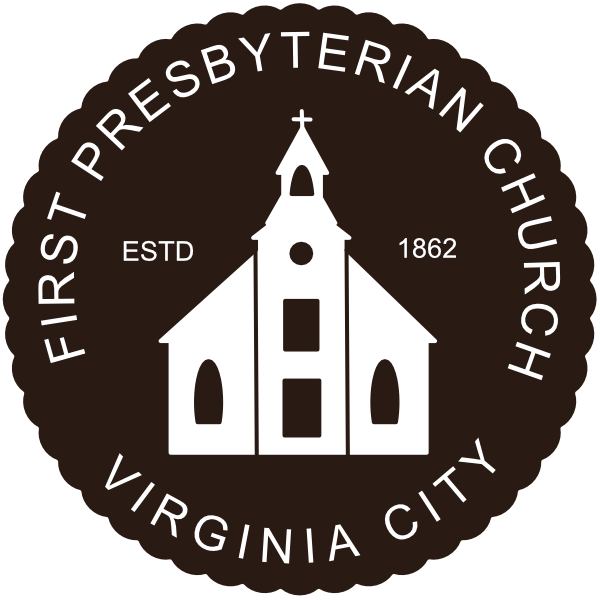
Last fall, you might remember, I took a weekend off to return to my hometown of Long Beach for my high school reunion. Due to the airline schedules, I had to take an early flight in, leaving me and my friend Sue several hours to drive around the city and visit the old neighborhoods, which had changed significantly in the past decades since I moved away.
Among the places we went by on our nostalgia tour was my home church. I attended there from the time I was ten until I was ordained out of seminary. As we stopped by on a Friday afternoon, I chose not to go into the facility. In the first place, being in metropolitan Southern California, the campus was secured with tall, iron fences and locks, for which I couldn’t even begin to guess the entry protocol. Second, while the building was familiar from my youth, I doubt I would have known anyone inside, so long have I been gone. And even if I had the opportunity to visit on a Sunday morning, I would not have chosen to do so. Let me explain.
Last week’s gospel lesson included the account of Jesus returning to his hometown and home synagogue following his baptism, temptation and his first teaching opportunities. Returning to his home congregation was much like my visits to my home church, which I did regularly during my seminary career and my early years of ministry. It was a part of going home to a place of warm memories and seeing people with whom I shared a mutual love.
However, over the intervening years, things had changed at my home church, as things inevitably do. The familiar staff had long since retired; most folks I had known had died or moved away. I realized I really didn’t know anyone there anymore, and so, it really was no longer the place I called home. But most of all, I realized that I was a different person, no longer a child of that congregation. I had grown up.
But most of all, I realized that the church and I had diverged theologically. The leadership and congregation had become more conservative and left the PCUSA. I had also developed a much different worldview and theology in those ensuing years. I was no longer the home-town girl done good. I had become a stranger, both personally and theologically.
Given all this, it would be highly unlikely I would have been invited to preach now, and probably, if I had, I would have likely been received like Jesus was after his sermon, just perhaps in a more civilized manner.
In the gospel lesson from last week, we read that Jesus had returned home. Those who’d known him since he was a boy were initially amazed and impressed. They spoke well of him. A joyous reunion seemed inevitable following the service, maybe a potluck dinner in the fellowship hall or a picnic on the lawn. But then things turned ugly — even murderous. After Jesus rolled up the scroll, and declared the Scripture fulfilled, the crowd beamed with pride at this hometown kid who had done so well. But Jesus didn’t stop there. He began to teach something new, something unexpected, something prophetic. So here we find, even at the very start of his ministry, he begins by foreshadowing its ending by saying prophets are not accepted in their hometown – in this case, Nazareth.
And the mood begins to change. As he launches into his sermon, he seems to cross that fine line from preaching to meddling; he tells stories, stories from their sacred scriptures, of how God went to outsiders rather than the chosen people of Israel (meaning them). Elijah went to the widow of Zarephath and Elisha to Naaman the Syrian, and not to the good people of Israel, not to the people like those seated in the pews that day in Nazareth. Essentially, he’s saying, “When I talk about God coming to free the oppressed and bless the poor, I’m talking about God blessing the people you can’t stand, the people you don’t want to be near, the people you think are your enemies. As in “I’m not talking about you.” At this point, Jesus enrages those who just moments before had been singing his praises. In fact, at this point, they are so upset that they want to kill him, the story says. They push him to the precipice of a hill, but Jesus escapes and goes on his way.
So, what was it that upset them so?
Let’s remember, he’s just finished reading Isaiah’s prophecy of a year of favor, of Jubilee, when the blind find sight, the captives release, the oppressed relief, and all the poor of this world find consolation. And, lest we be mistaken about the direction Jesus is heading in, it’s just as important to note what he doesn’t read. Because you see, if he’d continued on, he would have read of Isaiah telling them of that day when the Lord will trample down all Israel’s enemies, crush them underfoot and restore Israel to its rightful place. Nope, Jesus doesn’t read that part. He skips right over it. For, in reality, his sermon is not addressed to this local congregation; rather, he is preaching to a global audience. This was NOT a “Make Israel Great Again” sermon, but one in which he declares that God loves all the world and has a special concern for the poor.
And so, for this to come true, he says, there’s going to need to be some changes. For as his mother Mary had sung before her boy was even born, in order to raise the lowly, God’s going to have to demote the powerful; and in order to feed the poor, the rich are going to go away empty. Get the hint, Nazareth?
But no, the home crowd doesn’t get it. So, Jesus restates his message and drives his point home. Now this time they do get it; so clearly, in fact, they’re ready to get rid of him.
What does he mean God favors Syria, not Israel?! God heals in Capernaum, not Nazareth? I don’t think so, the locals say. That’s heresy. And you know what we do with heretics.
I suppose you could say that Jesus brought this on himself – he goes and does the one thing you’re never supposed to do, even to strangers, let alone to friends and neighbors: He tells them the truth, the truth about their pettiness and prejudice, their fear and shame, their willingness, even eagerness, to get ahead at any cost, even at the expense of another. In other words, he pulls their proverbial covers. And so, they want him gone — in the most permanent of ways.
And let’s face it; that’s pretty much the way it usually is. Because this text, and Luke’s whole gospel for that matter, isn’t about Jews or Romans, it isn’t about Nazarenes or Jerusalemites. It’s not even just about us. Rather, it’s about every race and nationality, about all the crowds of every time and place, who, when they meet one who tells them the truth about themselves, will go to almost any length to silence the messenger. For from the prophets of Israel to our own prophet, Martin Luther King, Jr., it’s not just the keepers of the dream that get rejected, beaten, and shot, but the tellers of the truth as well.
And so here we are, at the very outset of Jesus’ ministry, and already we see how it’s going to end. Because while Jesus somehow gets away today, later on, they’ll catch up with him. They’ll listen a little longer, get a little madder, and then lay their hands on him and nail him to the cross.
So, here’s another interesting question for the day: do you think things have changed all that much? I mean, do you think Jesus’ sermon about change and equity and release would go over any better today? Reading the news headlines, I’m not so sure. Jesus’ message, whenever and wherever it’s spoken, when it contradicts the status quo, will still make people see red.
So, what are we to do? Now that Jesus’ words have revealed the truth that we have got just as much fear and shame and prejudice as did the folks in Nazareth, what are we to do?
There’s only one option I can think of. And that’s to keep our eyes fastened on the one who told the truth in the first place, the one we nailed to a cross because of it. Because of all the prophets, of all the folks who came and told the truth only to be rejected, or beaten, or killed, this is the only one God raised from the dead.
And in Christ’s cross and resurrection we discover that Jesus’ word – really, Jesus the Word – not only reveals the truth about us, but also reveals the truth about God, a God so passionate for God’s people that God takes on our lot and our life, becomes one of us, even to the point of dying for us, only to come back bringing again a word of forgiveness and grace. For this God loves all God’s children – desperately, passionately, relentlessly – and that includes you and me.
So, what do we do with this good news? What would you think about us bringing good news to the poor, proclaiming release to the captives, helping the blind regain their sight, and setting the oppressed free? Why don’t we proclaim the year of the Lord’s favor? Having heard the good news of God’s love for all of God’s people, why not turn to say and do that same good news to everyone we meet?
The spirit of God has been given to us, the spirit of a God who not only knows everything about us but loves us anyway; a God who loves us so much that God will go to any length to redeem us from all the pettiness, shame, and fear that seem so often to overrun even the most successful of lives.
And then, alive in this Spirit of God, we can go out and do these things: proclaim, free, comfort, release. That is our challenge. And one that we can meet. For you see, we have been touched by the grace of God, and we have been given the grace and power to overcome our fear, our prejudice, our shame. God’s spirit is upon us now to speak and do God’s word to all those we meet. After all, the time of God’s favor Isaiah predicted and Jesus announced is still being fulfilled in our hearing, even now, even here.
Therefore, we can go out in the power of the word which will be with us as we go out into the world to serve. We got this! Thanks be to God for this good news, for the grace that keeps working in us. Alleluia! Amen
